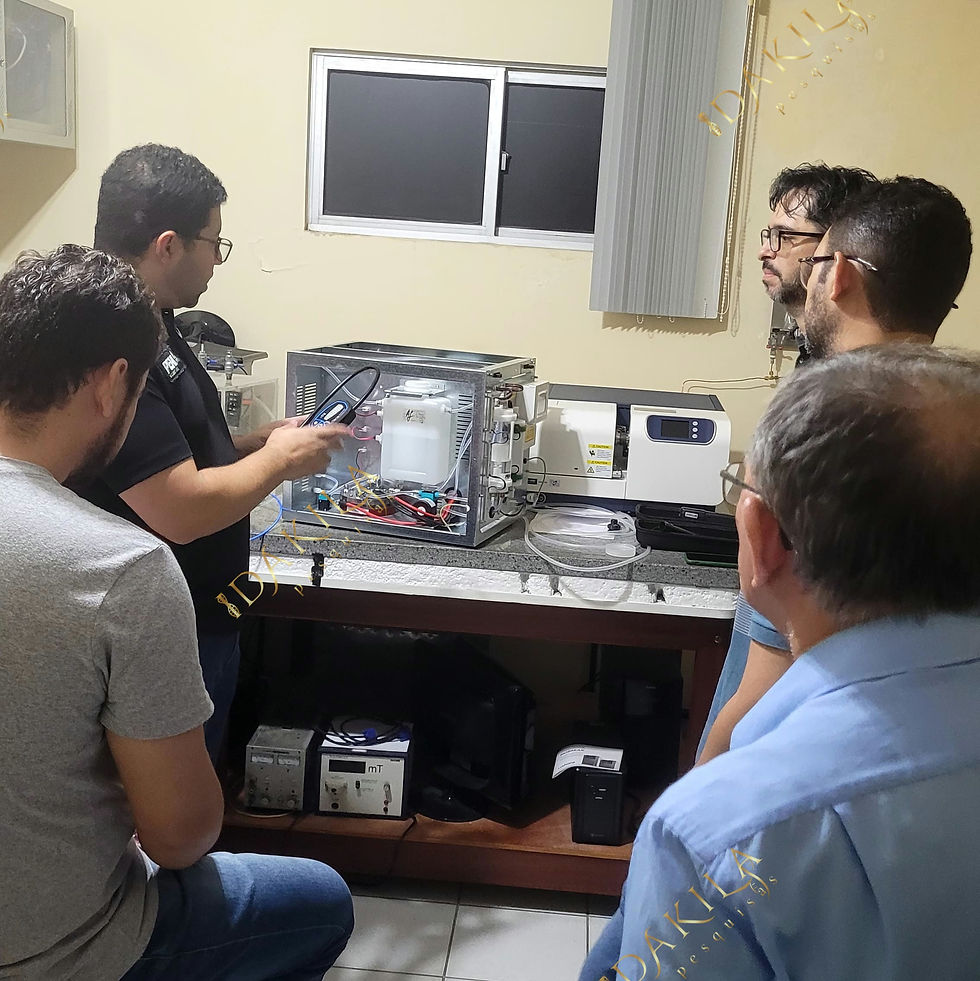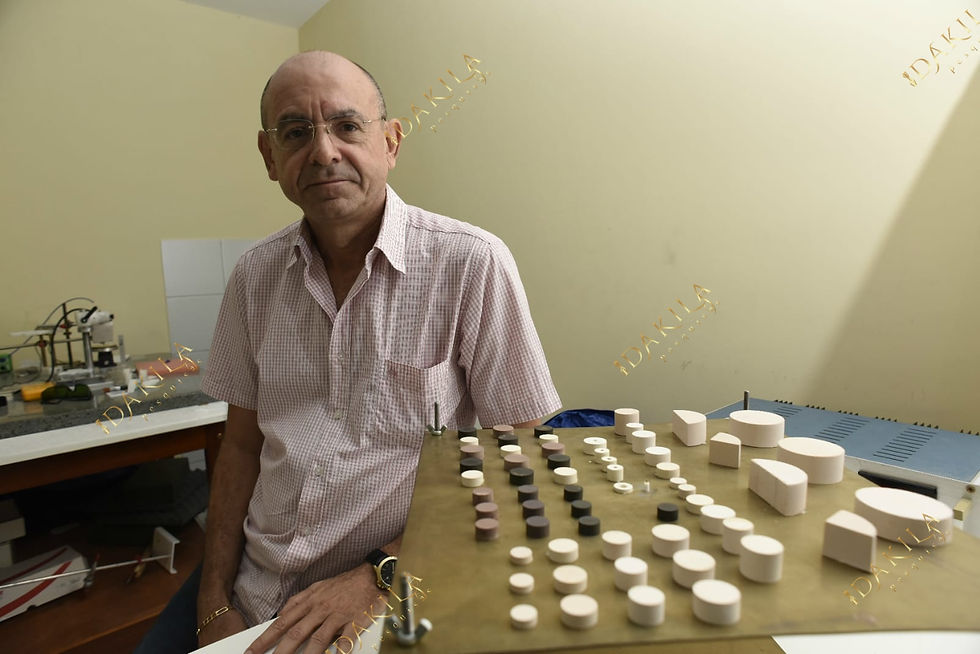How Bismuth Oxide Could Make Electronics More Efficient and Advanced
- Dakila News
- Feb 5
- 2 min read
Researchers have investigated how a unique material, called BiCu₃Ti₃FeO₁₂ (a type of ceramic), can be made more efficient when mixed with bismuth oxide (Bi₂O₃). This mixture improves how the material conducts electrical energy and resists heat, which is essential for modern electronic devices such as radio frequency and microwave antennas.

Members of the Laboratory of Telecommunications and Materials Science and Engineering (LOCEM)
What was studied?
Scientists wanted to find out how small amounts of bismuth oxide could improve BiCu₃Ti₃FeO₁₂ ceramics. They added different amounts of Bi₂O₃ to the original material and analyzed the changes using advanced techniques such as X-rays and electrical conduction tests. The main goal was to create more stable and efficient materials for electronic components.

What was discovered?
1. Greater heat resistance: The material became more stable at high temperatures when bismuth oxide was added. This means it can be used in hot environments without losing efficiency.
2. Better electrical performance: The material conducts electrical energy better at low and high frequencies, which is important for devices that need to work reliably.
3. Miniaturization of components: With the improvements obtained, the material can create smaller and lighter elements, such as radio frequency antennas, without losing quality.
Imagine that the electronic devices we use today, such as cell phones, routers, and satellites, need components that work well at high frequencies and withstand extreme temperatures. With this new material, these devices can become more efficient, durable, and even smaller, helping to advance the technology we use daily.
This study shows how combining bismuth oxide with ceramics can be a big step toward improving electronic technology. It can make devices more compact, reliable, and ready for future demands.

Antônio Sérgio Shadow - Physicist, Advisor to Dakila associate Diego Colares

Diego Colares - Brazilian Researcher and Physicist This project was conceived and developed by physicist Diego Colares, an associate at Dakila Pesquisas, who brought together experts in the field to formulate and execute the study. This research has received recognition and an award from the University of Qatar.
Follow our official media and visit the Dakila News website (dakilanews.com.br) for more details on these awards and related topics transforming our historical understanding.
DAKILA NEWS SOCIAL MEDIA:
Instagram - https://www.instagram.com/dakilanews/ Facebook - https://www.facebook.com/profile.php?id=100091141988861 YouTube - Dakila News - YouTube Twitter/X - https://twitter.com/DakilaNews Site - https://www.dakilanews.com.br/


Comments